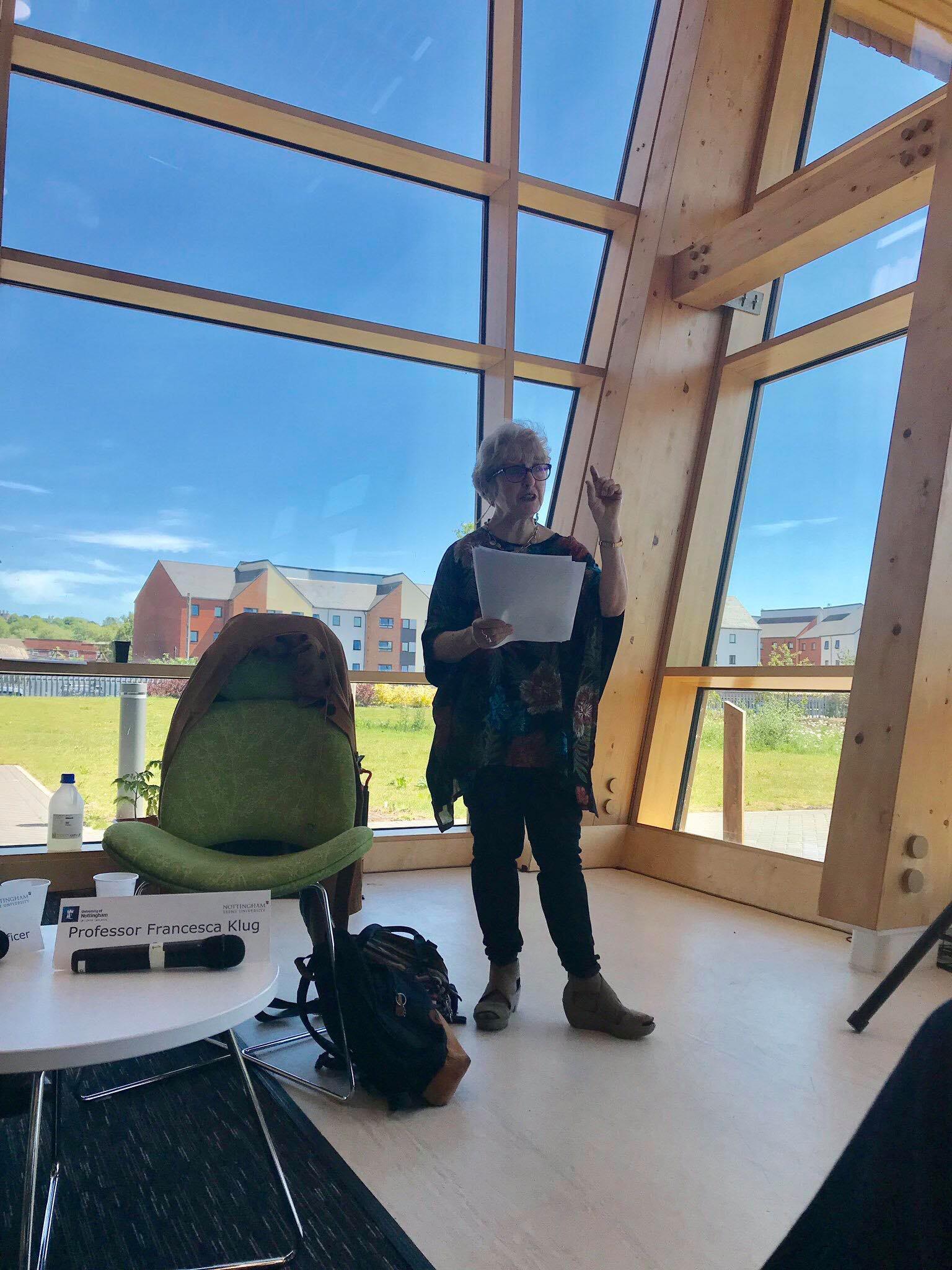
August 28, 2019, by Irena Hulova
The rewards and risks of achieving policy impact as a scholar
A blog based on the talk given by Prof Francesca Klug OBE to the Nottingham Women Expert Network at the University of Nottingham in May
For more information about support with policy engagement, sign up to the Nottingham Engaged conference on 17 September
In the blurb about her session, Professor Francesca Klug committed to telling us “how to respond to the demands of politicians, journalists, students and academic colleagues in the course of a day without losing it completely!” She even said she’d cover the R word – the REF, or Research Excellence Framework. Part autobiography, part mentoring session, the talk was packed with useful tips for researchers at all career stages wanting to achieve policy impact, without falling into pitfalls along the way. Professor Klug worked with the previous Labour government to incorporate the European Convention on Human Rights into domestic law. Below are three top tips from her talk that should be useful to colleagues across the disciplines.
Be relevant
Professor Klug began her academic career as a research fellow at Essex University by developing an index to evaluate UK laws against European Convention on Human Rights standards. She did this because of her expertise as the former Director of a human rights charity, as well as her personal belief in the post-war international human rights framework. But she was also fully aware of the Official Opposition (Labour) party’s commitment to incorporate the Convention into UK law – the policy development she ultimately had a hand in achieving. Your areas of research focus will be a balance between expertise, interest and policy relevance, but don’t forget to investigate policy opportunities and, where appropriate, shape your research agenda around them. This needs to be done at the beginning of the process and, ideally, be informed by conversations with those who may ultimately be the consumers of your research – politicians, advisors, industry and/or third sector groups. Build this engagement into your funding bid.
Relationships are key
Professor Klug talked about the importance of developing relationships of trust with those you want to use your research in the end. Yes, this includes politicians – don’t patronise them when you’re talking to them Professor Klug warns! – but it’s also their advisors and, in the case of government, civil servants. Ultimately, you can help these people do their job by ensuring their policy-making is based on robust research. This means it will be less open to criticism and, crucially, has a better chance of working as planned. Show them you are forensic and accurate. Be reliable and responsive. Listen – what do they need? Building up these relationships helps with gaining testimonies for REF impact case studies at the end of the process too. But how do you get to know the right people, particularly outside of London? Think about secondment opportunities – to Parliament, government agencies or similar. And don’t underestimate the importance of meeting face to face.
Find your niche and stick to it
You are an expert. That is of huge value to time and resource-stretched policy-makers, says Professor Klug. But your reputation stands and falls on your rigour. Don’t be tempted to stray into areas that are not within your expertise. Journalists may push you in that direction, or the policy-makers themselves. Better to say that’s not within my area of knowledge. Take up media training opportunities to help you do that. Likewise, don’t stray into making value judgements that can’t be evidenced. As well preserving your reputation for robust evidence-based research, you only have so much time! Balancing the demands of teaching, policy and public engagement and doing the actual research means you have to draw the line somewhere. Delve deeply into an issue, rather than ranging widely across many issues, Professor Klug advises, ideally an issue you care passionately about.
Blog by Amy Williams, Political and Public Affairs Officer in the University of Nottingham’s External Relations Department (amy.williams@nottingham.ac.uk)
To find out more about the Nottingham Women Expert Network, contact Emma Thorne emma.thorne@nottingham.ac.uk
To find out more about Nottingham Engaged see here, run by the Institute for Policy and Engagement.
Read more about Professor Francesca Klug OBE here.
No comments yet, fill out a comment to be the first

Leave a Reply